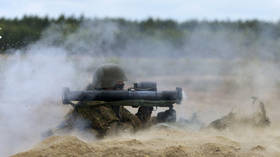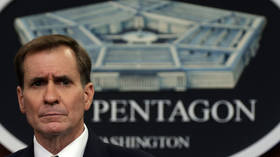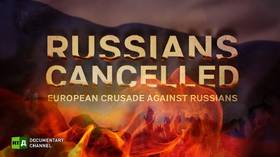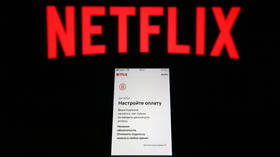Germany reveals undisclosed arms deliveries to Ukraine

Germany has supplied more weapons and military equipment to Ukraine than previously confirmed, Foreign Minister Annalena Baerbock revealed on Wednesday during a trip to the Latvian capital, Riga.
According to Germany’s Tagesschau media outlet, the minister said Berlin has “supplied anti-tank missiles, Stingers and other things which we have never spoken publicly about, so that those shipments could take place quickly.”
Top Ukrainian officials, including the country’s president, Volodymyr Zelensky, and ambassador to Germany, Andrey Melnik, have repeatedly criticized the German government for its failure to provide Kiev with heavy weaponry. According to the German media, Chancellor Olaf Scholz and his Social Democratic party are still skeptical about such deliveries, while his coalition partners, the Green Party and the Free Democratic Party, want Berlin to provide Kiev with more robust support, including tanks and armored vehicles.
Meanwhile, Bloomberg has claimed that Berlin was prepared to provide the Ukrainian military with both training and munitions for the German-made PzH 2000 self-propelled howitzers, which the Netherlands may supply to Ukraine from its stocks. The outlet, which cited an anonymous German official, said that Ukrainian troops could be trained to operate the system either in Poland or Germany itself.
A German government spokesperson, however, refused to comment on the possible delivery of the hardware to the Ukrainian military when asked by a Bloomberg journalist.
On Tuesday, Scholz said that the country had exhausted its own military stocks, and could no longer donate the Bundeswehr’s weapons to Ukraine without undermining its own defense capabilities. Instead, the German chancellor vowed to facilitate direct contacts between Kiev and German weapons manufacturers, as well as providing “the necessary money for the purchase.”
Russia attacked its neighboring state in late February, following Ukraine’s failure to implement the terms of the Minsk agreements, first signed in 2014, and Moscow’s eventual recognition of the Donbass republics of Donetsk and Lugansk. The German- and French-brokered protocols were designed to give the breakaway regions special status within the Ukrainian state. The Kremlin has since demanded that Ukraine officially declare itself a neutral country that will never join the US-led NATO military bloc. Kiev insists the Russian offensive was completely unprovoked and has denied claims it was planning to retake the two republics by force.















